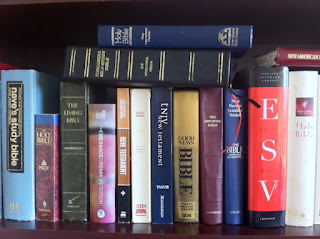This is substantially a continuation or a further development of yesterday’s post.
In the time with the Lord this morning one of the passages to which I was directed was Jude (the reading plan I use had Jude yesterday but I misread it and jumped into Revelation, oops). In Jude 4 (here @ Bible Gateway) we read that there are those in the community who turn grace into licentiousness.
Thinking through that, and there is much to which that applies, more than I want to explore in this post, several other passages came to mind.
Romans 6:1 – 2 (here @ Bible Gateway): Paul emphatically states that we are not to claim the grace of God as a covering to remain, continue, or abide in sinful behavior. Which would, it seems, be what Jude suggests is turning grace in to licentiousness. Interestingly, the word that is translated “continue” (NASB) here is in the same word group as the word that is translated “abide” in John 8:31 – 32 (here @ Bible Gateway). Galatians 5:13 (here @ Bible Gateway), echoes the thought here in Romans 6:1 – 2 (here @ Bible Gateway).
James 4:17 (here @ Bible Gateway): James reminds us that if we know what is right and do not do it. That is sin.
John 8:31 – 32 (here @ Bible Gateway): Jesus said that if we are going to be His disciples, we will abide, continue, in His Word.
Luke 6:46 (here @ Bible Gateway): Jesus asks a significant question. Why are you calling me Lord if you are not doing what I tell you to do?
All of these together would seem to suggest that if we claim to be followers of Christ – note that in Acts 11:26 (here @ Bible Gateway), those who are called Christians were first disciples – one of the distinguishing marks of a Christian, a disciple, is that they are those who abide, remain in, continue in, His Word.
That would seem to be the right thing to do, would it not? So, if we are not, are we not abiding in sin?
In the time with the Lord this morning one of the passages to which I was directed was Jude (the reading plan I use had Jude yesterday but I misread it and jumped into Revelation, oops). In Jude 4 (here @ Bible Gateway) we read that there are those in the community who turn grace into licentiousness.
Thinking through that, and there is much to which that applies, more than I want to explore in this post, several other passages came to mind.
Romans 6:1 – 2 (here @ Bible Gateway): Paul emphatically states that we are not to claim the grace of God as a covering to remain, continue, or abide in sinful behavior. Which would, it seems, be what Jude suggests is turning grace in to licentiousness. Interestingly, the word that is translated “continue” (NASB) here is in the same word group as the word that is translated “abide” in John 8:31 – 32 (here @ Bible Gateway). Galatians 5:13 (here @ Bible Gateway), echoes the thought here in Romans 6:1 – 2 (here @ Bible Gateway).
James 4:17 (here @ Bible Gateway): James reminds us that if we know what is right and do not do it. That is sin.
John 8:31 – 32 (here @ Bible Gateway): Jesus said that if we are going to be His disciples, we will abide, continue, in His Word.
Luke 6:46 (here @ Bible Gateway): Jesus asks a significant question. Why are you calling me Lord if you are not doing what I tell you to do?
All of these together would seem to suggest that if we claim to be followers of Christ – note that in Acts 11:26 (here @ Bible Gateway), those who are called Christians were first disciples – one of the distinguishing marks of a Christian, a disciple, is that they are those who abide, remain in, continue in, His Word.
That would seem to be the right thing to do, would it not? So, if we are not, are we not abiding in sin?







